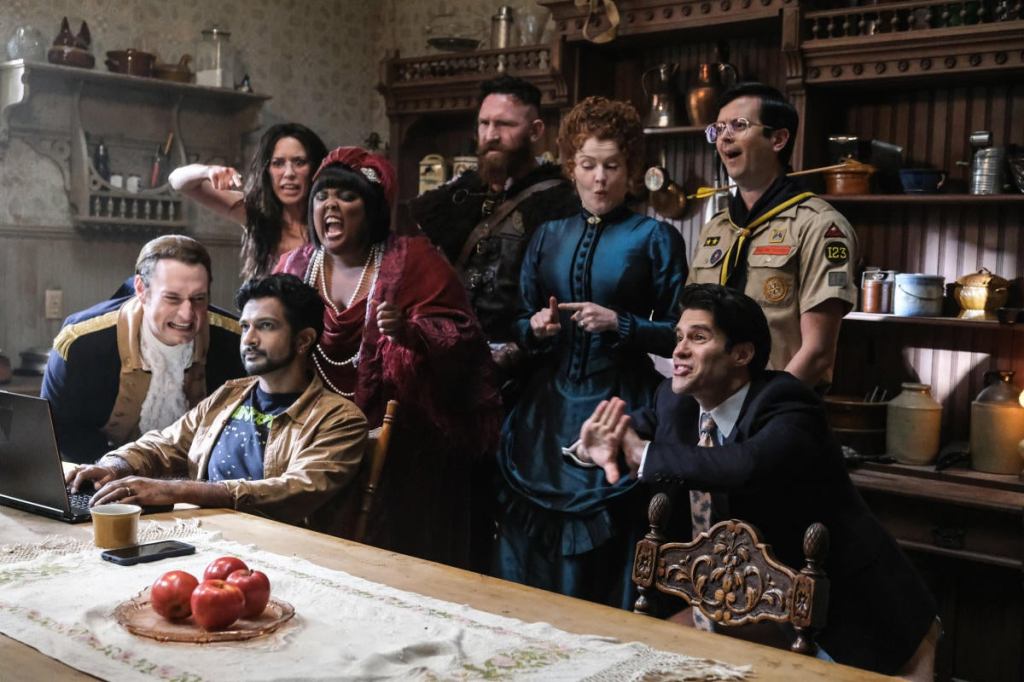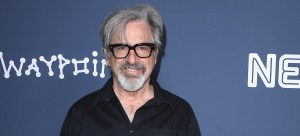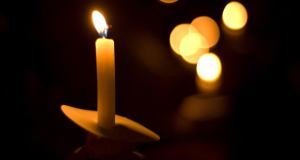CBS’s newest comedy Ghosts might be drop-dead funny, but it’s also one of the more diverse series this fall leading the way for some very meaningful conversations about representation. With the Joe Port and Joe Wiseman-created sitcom adapted from the BBC show of the same name making its way to primetime tonight and streaming on Paramount+, series star Utkarsh Ambudkar is proud of how the clever writing behind Ghosts acts as a springboard for conversations surrounding identity and representation within American culture today.
In an exclusive with PopCulture.com, the South Asian actor and rapper admits while the goal is to create an experience that is “enjoyed universally,” it’s important to also target specific audiences and give them what they want through content that is relatable. “The funniest thing is always the truth. The times when we laugh the most is when we see a comedian or we see someone tell the truth and we relate,” he said. “The more groups that we can include in the story, the more people are able to connect to it; and the more truth that we can tell from different perspectives, the more people laugh.”
Videos by PopCulture.com
Ambudkar says that while some of the jokes might not always be understood by some cultures, it allows other cultures to “feel seen and represented” — something he admits is “really the goal” to creating inclusivity and comedy that embraces representation. “I hope that we’re doing that to some degree with this show. It’s way, way, way less about who’s in front of the camera and way more about who’s behind the camera, in the writer’s room, producers, the creators, the crew, the design team, the creative team, executives,” he said. “A lot of people just stop at who’s on-screen, but it’s way more important to look at who’s making the shows and what stories they want to tell and how willing they are, to tell the truth. I think Ghosts.”

Ambudkar admits that while there are “some jokes” told that others in the room don’t quite understand, it’s still a crucial aspect of writing smart comedy that is inclusive. “It’s not funny to you because you didn’t live it. But if my community is seeing this, they’re going to feel seen, heard, and they’re going to really enjoy this joke,” he said. “To be in a work environment where we are trusted to make those kind of decisions and people put their faith in us to make the right choice, it feels good, feels like a derivative, but it’s important.”
The series has no doubt created an impression through its smart re-imagining and cognizance embracing American history and culture, notably seen with the character of Sasappis, played by Native actor Román Zaragoza. To get every element correct and honor the representation of those before us, Ambudkar reveals the show hired a Native American consultant for the construction of Zaragoza’s role. “It’s amazing how little we actually know about the people who lived here first because of the history that’s taught in our schools. But we have a consultant and Roman is very cognizant of the group that he’s representing and he is not a spokesperson for the community, but he knows — just like I know — who’s watching, who has my back and [co-star] Danielle [Pinnock] as well.”
Another aspect that is important to Ambudkar is the strides his South Asian community is making in an industry that has long showcased a decades-long lack of representation within western TV and film. The Baltimore-born performer whose family emigrated from India in the 1980s says while he can acknowledge the efforts reducing the marginalization and stereotypes, it all depends on what we want out of our content.
“As a consumer, if you want to see people that look like you on screen, then I think that we’ve achieved that to a great degree. I think there’s still room for — whatever you want to call it — Marvel roles, superhero roles. But Adhir Kalyan [United States of Al] and I used to go against each other for the same role and now we’re both sharing a night on television, both as lead roles on shows that we’re a part of, very different shows,” he said. “But I mean he and I used to ‘battle each other’ for the same role. There’s more than enough to go around now. I mean, Ravi Patel and Sunkrish Bala, Manish Dayal, Melanie Chandra and all these actors, they’re really working.”
Appreciative and humbled by all the opportunities granted for his fellow actors, the Ghosts lead adds there is one caveat to the addition of inclusivity when it comes to movies and TV shows attempting representation. “The thing that I’m noticing is, if the room that is picking the Muslim actors or South Asian actors, if that room is all one culture, or one color, or one gender, or one Asian, or one class then does what you see on screen, is it genuine?” he postulates. “Are they just doing to put on a facade? Or are the rooms in which the decisions are made, are those rooms diverse? I think is the next step.”
The actor, who also appears on Netflix’s , a series created by Mindy Kaling, adds that being on the set of a show like that “feels very good” and is an experience that is equally fulfilling. “I think that Mindy has created an amazing world and to be a part of that show is — there’s nothing like it. I mean, I’ve never been on a set where I’m like, ‘Oh, this is … ‘It’s comfortable, and culturally, people understand what’s happening here. It’s really interesting.”

For years, Hollywood has feigned racial diversity by using minorities as accessories or emblems of a White character’s hypothetical good intentions through tokenism, to avoid criticism or claims of discrimination. With no substance or solid characterizations of their own, Ambudkar says he no longer feels that way and calls it a “really good feeling” to have sort of shed it. “I don’t think it’s just me. I think as a whole, the industry has shed, at least as far as South Asians are concerned, the idea of tokenism,” he said. “I think with Latin actors and Trans actors and some Asian actors, I still think that there’s a lot of tokenism happening. But for my personal experience where I can speak for my community, or myself, the token mantle, I guess, is the token has been dropped. But I’m still the only one in the group. I’m still like the only Indian. It’s like me and my stand-in and that’s it. So when you talk about diversity, that’s not diverse at all.”
But Ambudkar says there’s “still a long way to go” in order to make positive, inclusive changes. “Because while I feel represented and I feel empowered and I certainly feel heard and respected in areas which I was not when I first started as an actor, I’m still aware of the fact that I’m the only one who looks like me in the room, most of the time.”
Ghosts premieres Thursday, Oct. 7 at 9 p.m. ET with a one-hour premiere featuring two back-to-back episodes on CBS and available to stream on Paramount+. Those interested in seeing all Paramount+ has to offer can click here for a free streaming offer. Disclosure: PopCulture.com is owned by ViacomCBS Streaming, a division of ViacomCBS.








